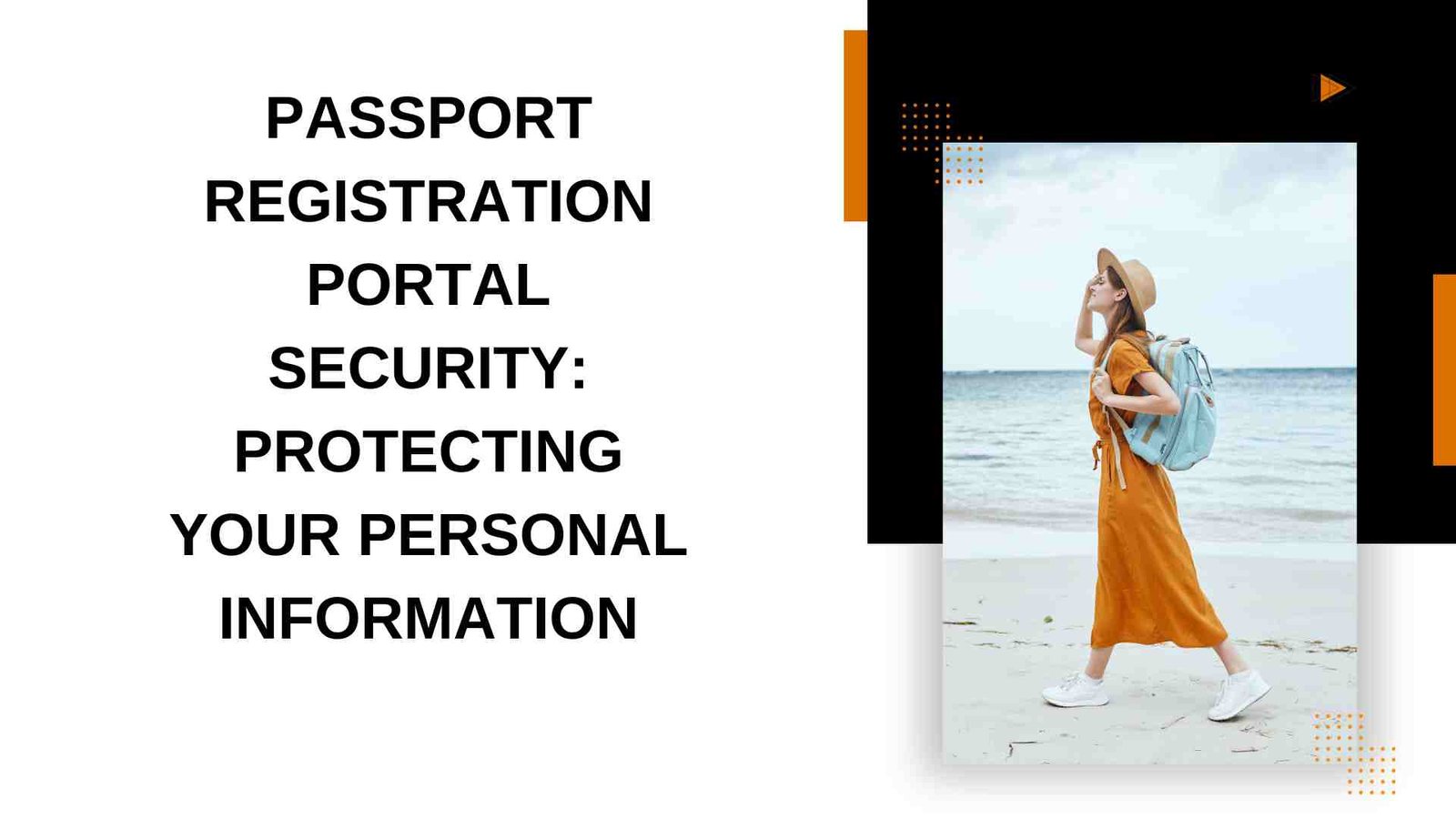Passport Registration Portal Security: Protecting Your Personal Information

A passport registration online is an official travel document issued by a government to its citizens. It serves as proof of the holder’s identity, nationality, and citizenship. Passports are essential for international travel, as they allow individuals to enter and exit foreign countries, as well as provide a means of identification while abroad.
The Importance of Passport Registration Portal Security
The security of passport registration portals is paramount, as they handle a wealth of sensitive information, including personal details, biometrics, and travel history. Here are some key security measures and considerations:
Encryption:
One of the fundamental security features of passport registration portals is encryption. Your data is typically transmitted and stored in an encrypted format, making it challenging for unauthorized individuals to intercept and decipher your information.
Secure Authentication:
Portal access is protected with strong authentication mechanisms, such as usernames, passwords, and often multi-factor authentication (MFA) to ensure that only authorized users can access and modify data.
Data Privacy Laws:
Governments and organizations operating passport registration portals are typically bound by data privacy laws and regulations. These laws govern how personal data is collected, stored, and processed, with penalties for breaches.
Regular Audits and Testing:
Government agencies often conduct regular security audits and vulnerability testing to identify and address potential weaknesses in their systems.
User Education:
Passport applicants are often educated about safe online practices and the importance of safeguarding their login credentials.
How to Protect Your Personal Information
Here are some proactive steps you can take to protect your personal information when using a passport registration portal:
Strong Passwords:
Create strong, unique passwords for your passport portal account, and change them periodically. Avoid using easily guessable information such as birthdays or names.
Multi-Factor Authentication (MFA):
If offered, enable MFA for an extra layer of security. This requires you to provide additional verification, such as a one-time code sent to your mobile device.
Secure Connection:
Always access the passport registration portal through a secure, trusted internet connection, and avoid public Wi-Fi networks for sensitive transactions.
Be Cautious of Phishing:
Watch out for phishing attempts. Be skeptical of unsolicited emails or links and confirm the legitimacy of the portal website before entering your data.
Keep Records Secure:
Store hard copies of any documents or confirmation receipts in a safe, physically secure location.
Continuing the Discussion on Passport Registration Portal Security
While passport registration portals have made the application process more convenient and efficient, security remains a top concern. Here are additional security aspects and tips to help you protect your personal information when using these platforms:
Security Measures in Place:
Firewalls and Intrusion Detection:
Passport registration portals often deploy robust firewalls and intrusion detection systems to monitor and block unauthorized access attempts, adding an extra layer of security.
Access Control:
Access to the portal is typically restricted to authorized personnel only. This minimizes the risk of insider threats and unauthorized access.
Data Minimization:
Government agencies follow data minimization practices, collecting only the information necessary for passport issuance, reducing the risk associated with excessive data storage.
Regular Updates and Patching:
Portal software is regularly updated to address known vulnerabilities. Users should ensure that their devices and browsers are also up-to-date to benefit from the latest security patches.
User Practices for Enhanced Security:
Secure Document Handling:
Safeguard any physical documents used during the registration process. This includes birth certificates, marriage certificates, or other supporting documents, which contain sensitive data.
Monitor Your Account:
Regularly review your passport registration portal account for any suspicious activity or changes. If you notice any unauthorized modifications, contact the relevant authorities immediately.
Beware of Social Engineering:
Cybercriminals may attempt to manipulate individuals into revealing personal information. Be cautious about unsolicited phone calls, emails, or messages requesting sensitive data.
Data Encryption:
Check for the padlock symbol in your web browser’s address bar, indicating a secure, encrypted connection, before entering any information on the portal.
Log Out Properly:
Always log out of your account when you’re finished, especially when using a shared or public computer. This prevents unauthorized access to your information.
You can also Document required for Indian passport
Government Transparency and Accountability:
Government Commitment:
Governments have a responsibility to ensure the security of passport registration portals. Regularly assess your government’s commitment to data protection, cybersecurity, and the implementation of best practices.
Reporting Incidents:
If you suspect a security breach or encounter unusual issues during the registration process, report it to the relevant authorities. Timely reporting helps identify and address vulnerabilities.
Conclusion:
Ensuring the security of your personal information when using a passport registration portal is of utmost importance. Government agencies and organizations are committed to providing a secure and efficient application process, but it’s equally crucial for users to be vigilant and take responsibility for their own security. By following best practices and staying informed about the security measures in place, you can confidently use passport registration portals to apply for or renew your passport, knowing that your sensitive data is well-protected.




